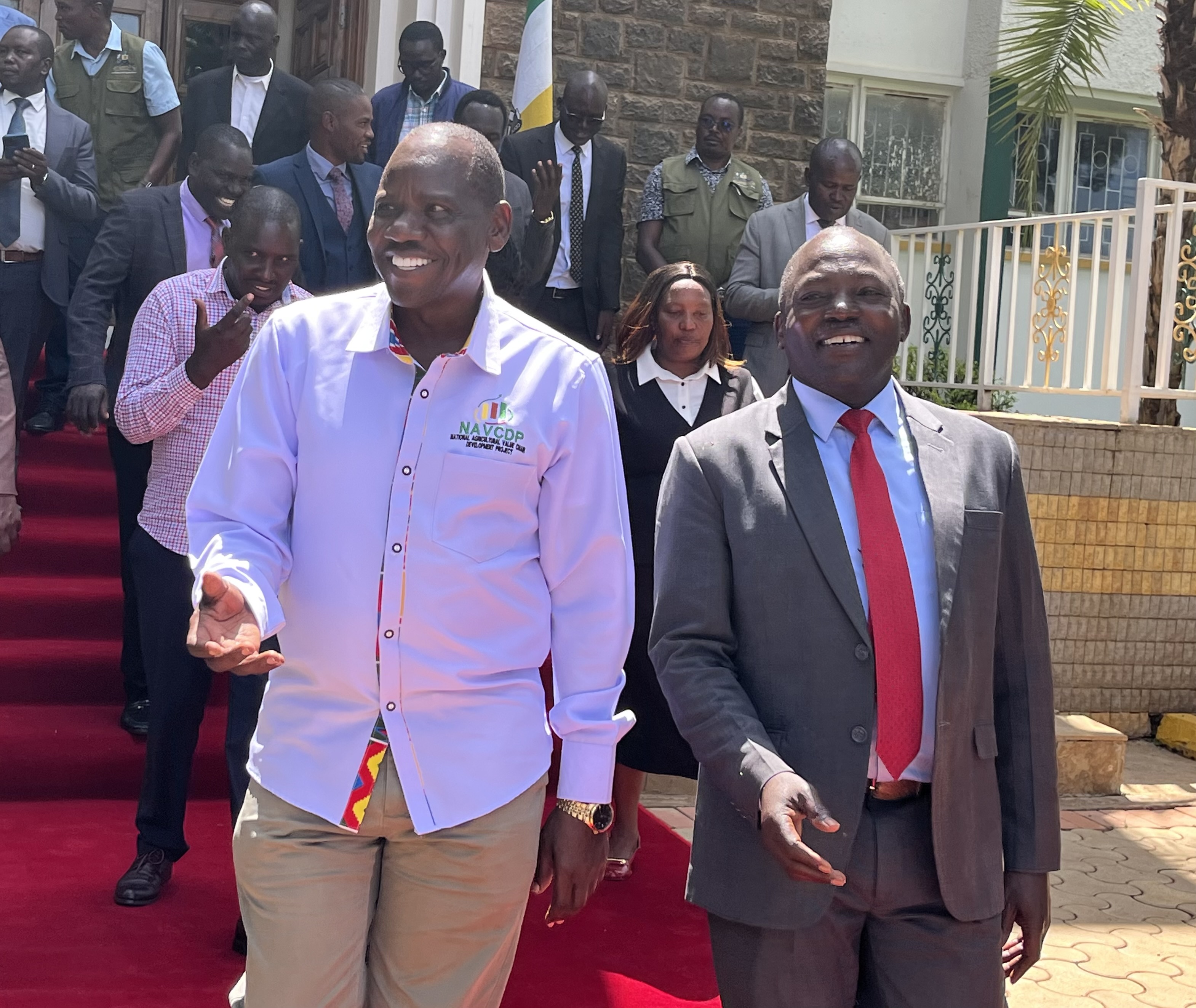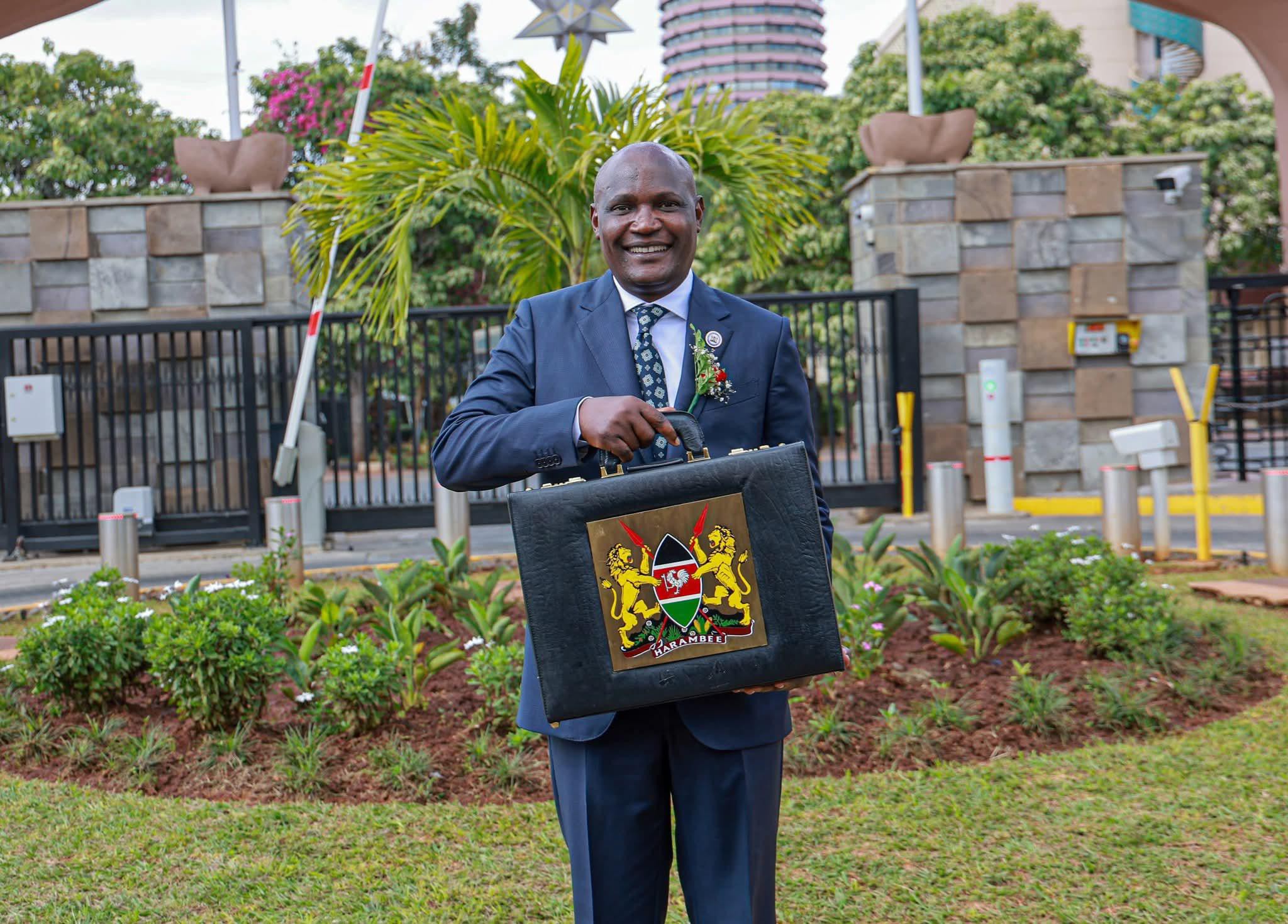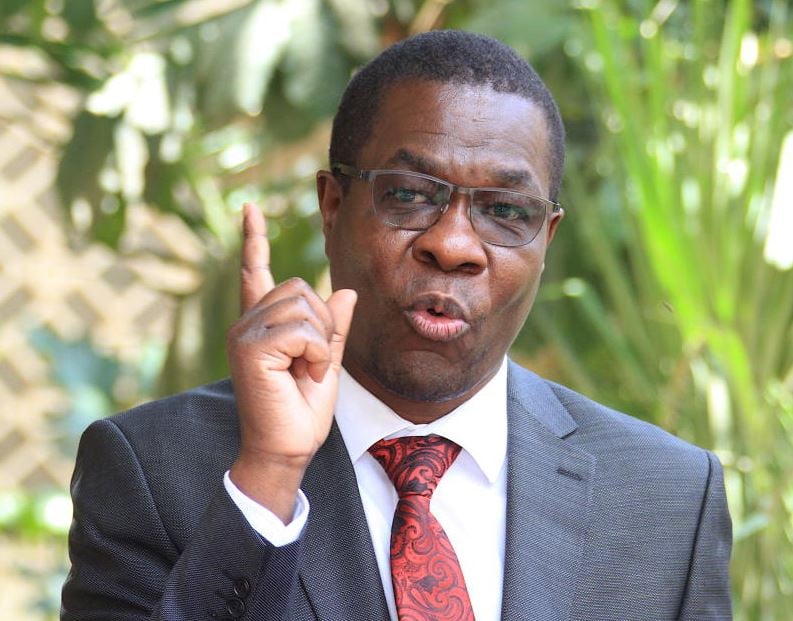Murkomen and Cherargei Engage in Fiery Senate Exchange Over Security Failures and Leadership Accountability
Interior CS Kipchumba Murkomen and Senator Samson Cherargei clashed in a heated Senate session over the death of Albert Ojwang. Cherargei accused Murkomen of incompetence and called for his resignation. Murkomen hit back, questioning Cherargei’s credibility and past academic performance.
A dramatic showdown unfolded in the Senate on Wednesday, June 11, as long-standing tensions between Interior Cabinet Secretary Kipchumba Murkomen and Nandi Senator Samson Cherargei erupted in a heated verbal exchange. The clash, marked by personal jabs and accusations of incompetence, came amid a special Senate session probing the controversial death of influencer Albert Ojwang while in police custody.
The session had been convened to allow CS Murkomen, alongside top police officials, to respond to growing public concern and outrage over Ojwang’s tragic demise. But what was meant to be a solemn and investigative engagement quickly spiraled into a political battle, as Senator Cherargei reignited his relentless criticism of Murkomen’s leadership.
For months, Cherargei has been a vocal critic of Murkomen, frequently calling for his resignation over what he describes as gross failures in ensuring public safety and tackling police excesses. During his contribution to the debate, Cherargei doubled down on these calls, accusing the Interior CS of presiding over a ministry plagued by leadership failure.
"The Ministry of Interior suffers from a deep-rooted leadership crisis," he asserted. "This nation has now seen for itself the incompetence of CS Murkomen in addressing matters like the brutal killing of Albert Ojwang. If theres any accountability to be taken, it begins with Murkomen."
Cherargei didnt stop there. He urged President William Ruto to initiate a reshuffle of his cabinet, suggesting that Murkomen would be better suited in a less demanding docket like Sports. "He’s treating serious national issues like games. If he prefers mchezo, then let him go back to the Sports Ministry," the senator said sharply. “He has failed to formulate or present any coherent policy addressing police brutality. Must he wait for 10,000 years to make a difference?”
CS Murkomen, known for his combative style, did not hold back in his response. He accused Senator Cherargei of launching personal attacks not based on facts but on political jealousy and vendettas. “Every time I appear in this House, Senator Cherargei parrots the same chorus — that I should resign,” Murkomen retorted. “It’s a tired line that has no basis. He doesn’t provide facts, just noise.”
The CS further attempted to discredit the senator’s capacity to evaluate his performance by invoking their past academic relationship. “Cherargei was my student, and I taught him more than two subjects,” Murkomen revealed, drawing murmurs from the floor. “His academic performance was below average. If we’re discussing competence, he is the last person who should be leading that conversation.”
Murkomen went on to suggest that Cherargei’s persistent attacks stem from personal bitterness and a quest for attention. “This House is a place for serious legislative business, not pettiness. We must rise above personal grudges and uphold the dignity of Parliament.”
Despite the tension, the exchange underscored the increasing pressure on government officials to address rising insecurity and allegations of abuse by law enforcement agencies. While the bitter personal feud between Murkomen and Cherargei dominated headlines, at the heart of the debate remains a grieving family, a lost life, and a public demanding answers and reform.
The Senate is expected to continue probing the circumstances surrounding Albert Ojwang’s death, with various leaders emphasizing the need for justice and systemic police accountability. However, Wednesday’s session served as a clear reminder that beyond policy discussions, Kenya’s political arena is still marked by personal rivalries and power struggles.


-og_image.webp)










